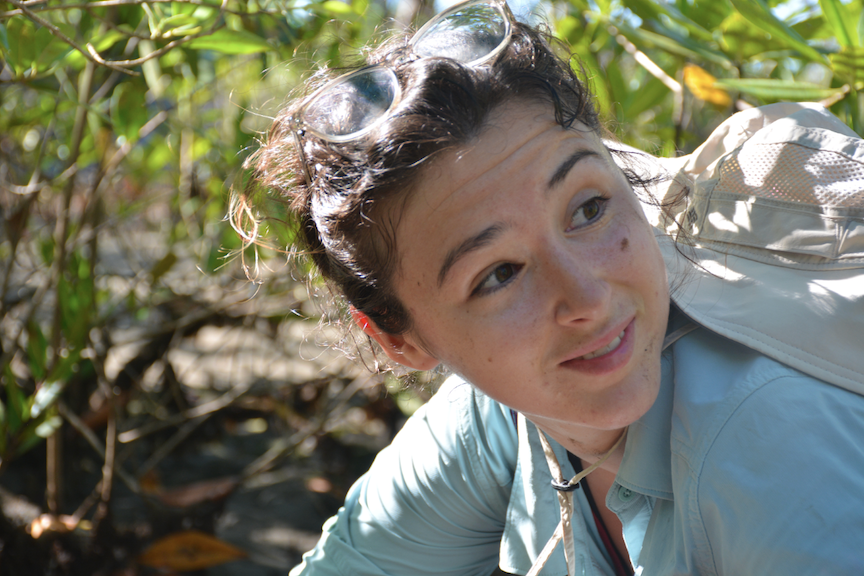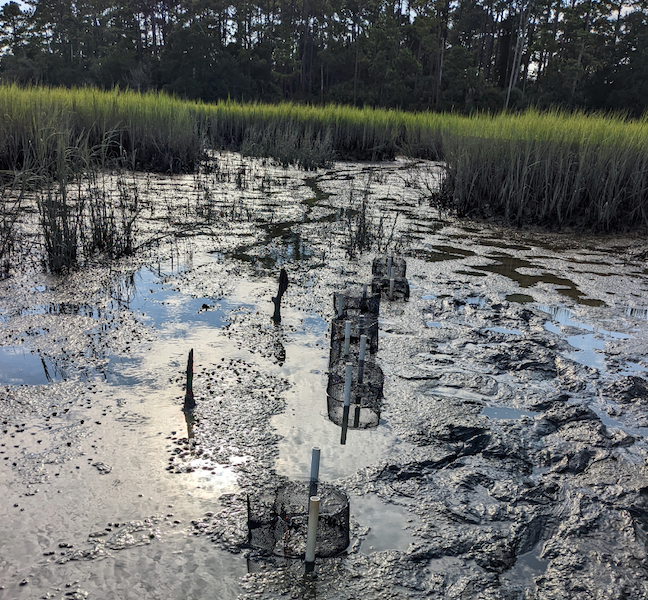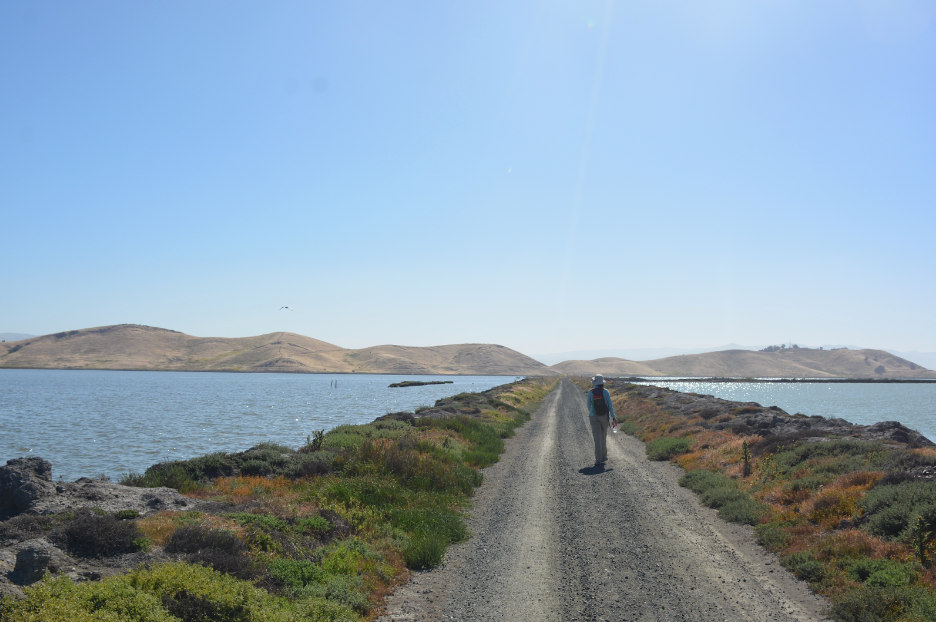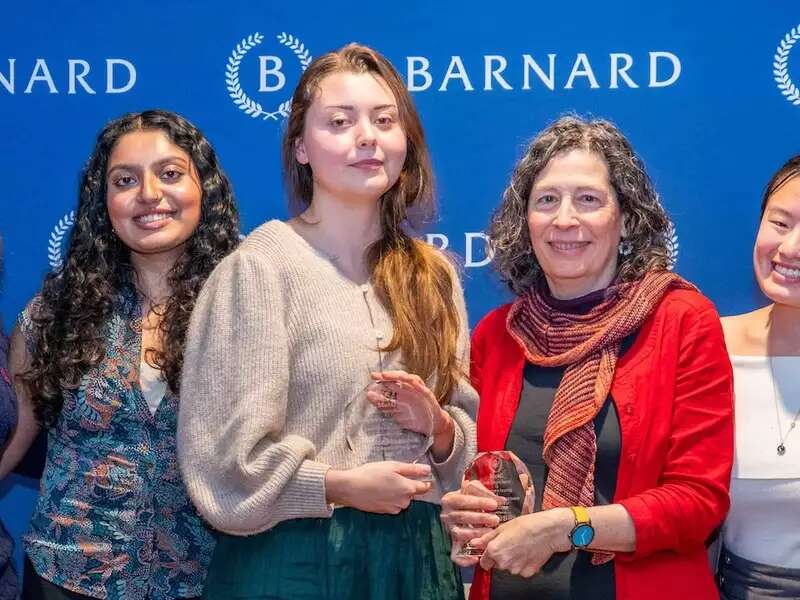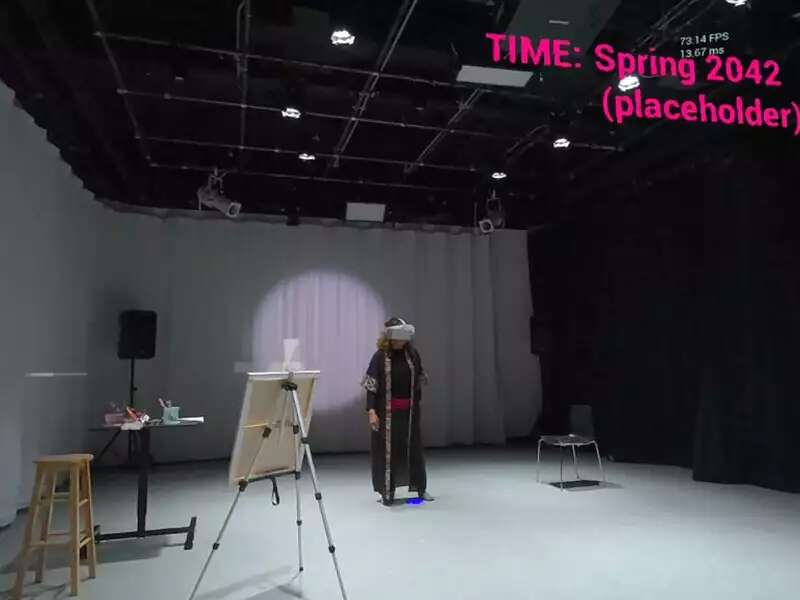Can you walk us through your research journey?
I studied ecology at Columbia University but I ended up working a lot with the Natural History Museum, where I worked on the Bahamas Biocomplexity Project studying coral reef benthic communities. I ended up doing an independent project in the herpetology department studying chameleons and their coloration, which led me to Madagascar for a month to do some field work. And there, I realized that I liked field work, but not that much fieldwork. I’m glad I did it, but it was also like maybe this isn't exactly what I want to do.
Then I went to UT Austin for my PhD. My PhD was kind of dynamic in that all of my advisors left to go to different universities and my project changed a lot. It was all about aquatic ecology and then my last couple chapters ended up being more parasite ecology focused. Whenever people get stressed out about their PhD not being streamlined, I tell them it's okay. Mine was all over the place, but things ended up well. It is what it is.
From there, I went to the University of Georgia. I was at the Center for the Ecology of Infectious Diseases at the Odum School of Ecology, which is a school at UGA devoted entirely to ecology. There, I did a lot more parasite ecology. I was working on local systems and looking at parasites and how parasites influence the environment that they are in. I spent a year out on Sapelo Island teaching at UGA’s Marine Institute. I moved out there to be the scientist in residence, which just means that I was a faculty that was living out in the field.
So yeah, I lived down on this island that you could only get to by a ferry that runs twice a day. There were maybe 60 people on the island and it was the size of Manhattan. It was very very remote. That was the environment I am leaving from to come to Barnard, so it is a bit of a culture shock; to go from a place where there were probably more gators than people off the island to now one of the busiest cities in the world.
So, why ecology?
My story is that my dad is an ecologist, so I grew up helping him out doing things in the field. I fell in love with the scientific process, being outside and asking questions. When I got to college, I kind of rebelled. You know, I love ecology and things like that but I didn’t want to be in the shadow of my dad. I tried to do a bunch of other things. I was into food so I worked at bakeries and coffee shops. I was also going to be a classics major for the first couple years of undergrad. But then at some point, you realize you love what you love right? You can't help that sometimes it is also what you were exposed to as a kid.
I think the disease aspects of ecology are just so creepy and weird. But I also think that they are so understudied, that it is just this amazing opportunity to learn. Because every organism on this planet has at least one parasite. If you think about it in those terms, we should be studying parasites at an equal level as all the other free living organisms, if we are trying to study things based on their abundance or diversity. And we just don't; we don’t know anything about many of these parasites. We are in no way studying them as much as we should.
Every organism on this planet has at least one parasite. If you think about it in those terms, we should be studying parasites at an equal level as all the other free living organisms ... We are in no way studying them as much as we should.
What is your lab focused on?
My lab has mostly been focusing on parasites in the eastern mudsnail. Eastern mudsnails are mostly on mud flats; like when you're in brackish, semi-salt water, you'll have all that salt marsh vegetation and then you'll have a bare mudflat. On these mudflats you can have like thousands and thousands of these snails. I have had over a thousand snails per square meter at one point. They are really dense and really important for consuming dead materials. They are also a food source for a lot of organisms. Moreover, they have this very wide geographic range. You can study the same species from Florida all the way up to Maine. In Georgia I was studying them, and they are up here in New York, so I can continue working with them.
The main thing I am interested in is that they are a host to a suite of parasites. The parasites infect the snail, then castrate it, and they use the snail’s body as a factory to produce their own offspring. Very sci-fi and creepy but also kind of awesome. I am interested in their complex life cycle. They first use that snail and then maybe they will infect a fish and then that fish will get eaten by a bird, and the bird is where sexual reproduction happens. These 12 different parasites from the suite each have specific but different life cycles, where they go through different but specific hosts. I am hoping to try to utilize these snails and parasites as an indicator of ecosystem health. Essentially, I am trying to use it as a very cheap way to determine whether you have high diversity of free living species and whether or not your ecosystem is in good health.
I am also hoping to get more into my Eastern Oyster project. I dabbled a little bit with it in Georgia and I am hoping to get involved with the Billion Oyster Project and have a branch of my lab that is a bit more applied and working with conservation and restoration.
Why is the work you do important?
Many of us study free living organisms but we don't often think about whether or not these organisms are infected by parasites. One of the things recent work and my work has been showing is that whether organisms are infected or not really changes their behavior and their role in the ecosystem. Even when we are just interested in the behavior of free living species, sometimes knowing whether or not they are infected and with what can help us explain why they are doing what they are doing. For example, in other snail species I have worked on, we see that infected snails will eat twice as much as uninfected snails. If you think about their role in the environment as eating algae, they have a much stronger role and a much bigger effect compared to an uninfected individual.
An infected individual and an uninfected individual can have very different impacts on the environment. When you see differences in times or locations, one of the things that could be explaining some of the differences is parasitism. Sometimes it's really hard to study the parasites and that could lead you down a whole different trajectory. But I think it's good when you're studying a free living organism to have a sense of what the parasites look like to figure out whether or not that is something you should consider. These are just things that I think people often ignore that can, not always, but can dramatically change how you interpret your data.
What brings you to Barnard?
So I have been really interested in teaching at a women's liberal arts college. For a while, I was doing this podcast with my friend, called the STEM Fatale podcast (linked below). We realized we really didn't know that many historic women in science. Not that they weren't there, but when you read textbooks, it's just that most people are citing and talking about famous men. So we did this podcast looking at historical women in science and it was really fun. I got really interested in both teaching people about women who have done science historically and teaching women who will become scientists in the future.
Then why a liberal arts college? I think my research really lends itself to working with undergrads. As a post-doc, I had a lab that was entirely undergrads and I just loved it. Undergrads can work in the lab and then take that knowledge and do whatever. They don't have to go into academia. They can, but they can also use it to go do a nonprofit or do restoration work. And all of that scientific knowledge is super super valuable. So I really liked introducing students to the scientific process and research. I really like seeing what students come up with and then helping them develop that so they can have their own projects. My lab had all sorts of parasites projects going on, which I loved.
Lastly, I love the city. I love Morningside Heights and I am really interested in doing some urban disease ecology. It's unclear for some of these different parasites whether you'd expect there to be more or less parasites in urban areas and the types of effects you could see.
Undergrads can work in the lab and then take that knowledge and do whatever. They don't have to go into academia. They can, but they can also use it to go do a nonprofit or do restoration work. And all of that scientific knowledge is super super valuable.
What do you like to do outside of work?
I used to have a farm for a little bit and I sold vegetables at farmers markets and things like that. I would love to get back into farming, in whatever capacity I can do in that regard. If you are doing organic, small-scale farming, the amount of ecology you are putting into place is kind of remarkable. Like trying to diversify your crops so that one pest doesn't obliterate things or having a variety of crops for your own purposes.
I am also really into baking, so I do a lot of that. I made some homemade marshmallows recently. While I was at Columbia, I worked at The Hungarian Pastry Shop, so that holds a special place in my heart. I always go back there when I can. I love that it is so dark and there are so many people crammed in. I just love being in the city.
Learn more about Dr. Emlyn Resetarits and her research
- Listen to her podcast available on Spotify
- Learn more about her research on her website
- Find her publications here
- Students can reach out to her at: eresetar@barnard.edu
- FATIMA BAGOM '26
